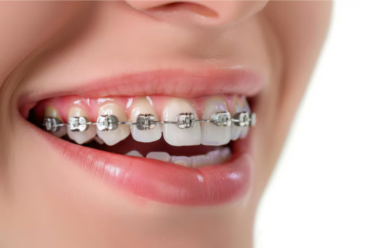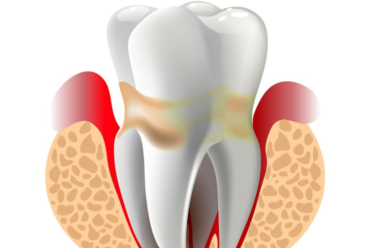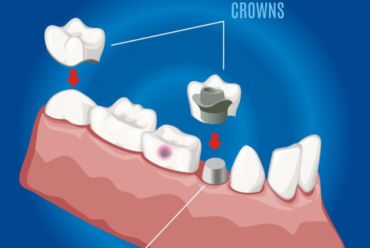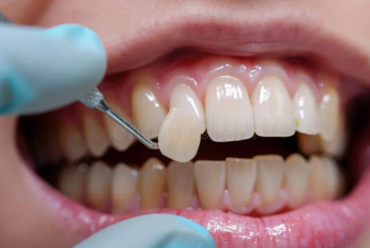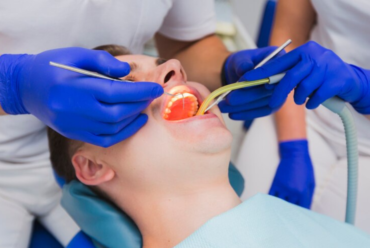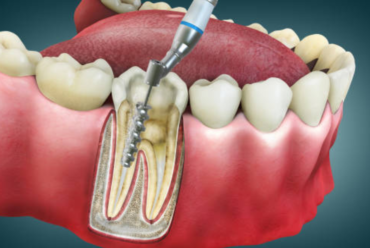Choosing Between Full and Partial Dentures: What You Need to Know
When it comes to replacing missing teeth, dentures are one of the most common and effective solutions available. Whether due to aging, injury, or dental health problems, losing teeth can significantly impact both your appearance and your oral function. Dentures can restore your smile and improve your ability to eat, speak, and live confidently. However, the process of choosing the right type of dentures—full or partial—can be confusing.
In this guide, we’ll explore the key differences between full and partial dentures, their respective benefits, and how to decide which option is best suited to your needs.
What Are Dentures?
Dentures are prosthetic devices designed to replace missing teeth and the surrounding gum tissues. They are custom-made to fit each patient’s mouth, ensuring a comfortable and natural look. Dentures come in two main types: full (complete) and partial. Both types are removable, though some can be permanently fixed in place with dental implants.
The choice between full and partial dentures depends on factors such as the number of missing teeth, the health of your remaining teeth, and your overall dental health.
Full Dentures: An Overview
Full dentures, also known as complete dentures, are designed for individuals who are missing all of their teeth in either the upper or lower jaw, or both. Full dentures are made from a gum-colored acrylic base that fits snugly over your gums, with a full set of artificial teeth attached to this base.
Full dentures can either be conventional or immediate:
- Conventional full dentures are placed after any remaining teeth have been removed, and the gums have healed. This healing process can take several months, during which time the patient may be without teeth.
- Immediate full dentures are placed immediately after tooth removal. This option allows the patient to have a full set of teeth right away, but adjustments may be needed as the gums heal and change shape over time.
Benefits of Full Dentures
- Restored Appearance: Full dentures provide a complete, natural-looking set of teeth, restoring the appearance of your smile.
- Improved Chewing and Speaking: Full dentures help improve chewing ability and restore clarity in speech, allowing patients to eat a wide variety of foods and communicate more effectively.
- Affordability: Compared to other tooth replacement options, such as dental implants, full dentures are more cost-effective.
- Custom Fit: Full dentures are tailored to fit the unique shape and size of your gums, ensuring comfort and functionality.
Drawbacks of Full Dentures
- Stability: Full dentures rely on suction or adhesives to stay in place, which can sometimes lead to movement or slipping during eating or speaking.
- Gum Irritation: The base of full dentures may cause gum irritation, especially during the adjustment period.
- Bone Loss: Full dentures do not stimulate the jawbone like natural teeth, which can lead to bone loss over time.
Partial Dentures: An Overview
Partial dentures are designed for individuals who still have some of their natural teeth remaining. Partial dentures consist of a metal or acrylic framework with artificial teeth attached to it. The framework clips onto your existing teeth to stay in place, filling the gaps created by missing teeth. Partial dentures are often recommended when a few teeth are missing but the remaining natural teeth are healthy.
There are two main types of partial dentures:
- Removable partial dentures: These can be easily taken out for cleaning and are attached to the natural teeth with clasps or precision attachments.
- Fixed partial dentures (bridges): These are permanently secured to adjacent teeth or dental implants.
Benefits of Partial Dentures
- Preservation of Natural Teeth: Partial dentures allow you to retain your remaining healthy teeth while filling in the gaps with artificial ones.
- Improved Functionality: By filling in the gaps left by missing teeth, partial dentures improve your ability to chew food and speak clearly.
- Stability: Partial dentures attach to your existing teeth, providing more stability than full dentures and reducing the likelihood of slipping or shifting.
- Aesthetic and Functional Improvement: Partial dentures help maintain the natural alignment of your teeth and prevent other teeth from shifting into the gaps left by missing teeth.
Drawbacks of Partial Dentures
- Potential Discomfort: Some patients may find the metal clasps or attachments used to secure partial dentures uncomfortable or visible.
- Dependence on Remaining Teeth: Partial dentures rely on the health and strength of your remaining teeth. If those teeth become damaged or decayed, the denture may need to be adjusted or replaced.
- Maintenance: Partial dentures require daily removal for cleaning and maintenance, which can be cumbersome for some users.
Factors to Consider When Choosing Between Full and Partial Dentures
When deciding between full and partial dentures, it’s essential to consider the following factors:
- Number of Missing Teeth
The most obvious consideration is the number of teeth you’re missing. If all of your teeth in one or both arches are missing, full dentures are the best option. If you still have some healthy teeth, partial dentures may be more appropriate.
- Condition of Remaining Teeth
If your remaining teeth are healthy and strong, they can be used to support partial dentures. However, if your remaining teeth are damaged, decayed, or at risk of future dental issues, full dentures may be the more reliable choice.
- Budget
Full dentures are generally less expensive than dental bridges or implants but may still require replacement after several years. Partial dentures, while slightly more expensive, can also be a cost-effective solution depending on your specific dental needs.
- Bone Health
If your jawbone is strong and healthy, you may be a candidate for dental implants to support full or partial dentures, which can offer added stability and prevent bone loss. However, if your jawbone has weakened or deteriorated, traditional full or partial dentures may be a better option.
- Aesthetic Preferences
Both full and partial dentures are designed to look natural, but the materials and construction differ. Full dentures replace an entire arch of teeth, while partial dentures are designed to blend in with your existing teeth. Your dentist can help ensure that your dentures are custom-made to meet your aesthetic goals.
- Functionality
Consider how important functionality is to you. If you need strong, stable dentures for activities like eating tough or sticky foods, partial dentures may provide more stability. Full dentures, while effective, may require adjustments or adhesives for certain types of food.
- Long-Term Maintenance
Partial dentures require daily removal for cleaning and maintenance, while full dentures may require adhesives or re-adjustments as the jawbone changes shape over time. Consider how much time and effort you’re willing to invest in maintaining your dentures.
Which Option Is Best for You?
Choosing between full and partial dentures ultimately comes down to your individual dental needs and preferences. If you’re missing all your teeth or if your remaining teeth are not strong enough to support partial dentures, full dentures may be the best solution. On the other hand, if you still have some healthy teeth, partial dentures can provide stability and functionality while preserving your natural teeth.
Consult with your dentist to evaluate your oral health, discuss your options, and determine which type of denture is the best fit for your lifestyle. Your dentist will take into account factors such as the condition of your teeth, bone health, and aesthetic preferences to create a personalized treatment plan that restores both the function and appearance of your smile.
Conclusion
Deciding between full and partial dentures is a significant step in restoring your smile and maintaining oral health. Both options have their unique advantages and challenges, and the right choice depends on your specific dental situation. With the help of your dentist, you can find a solution that meets your needs, allowing you to regain confidence and enjoy a full, healthy smile once again.


